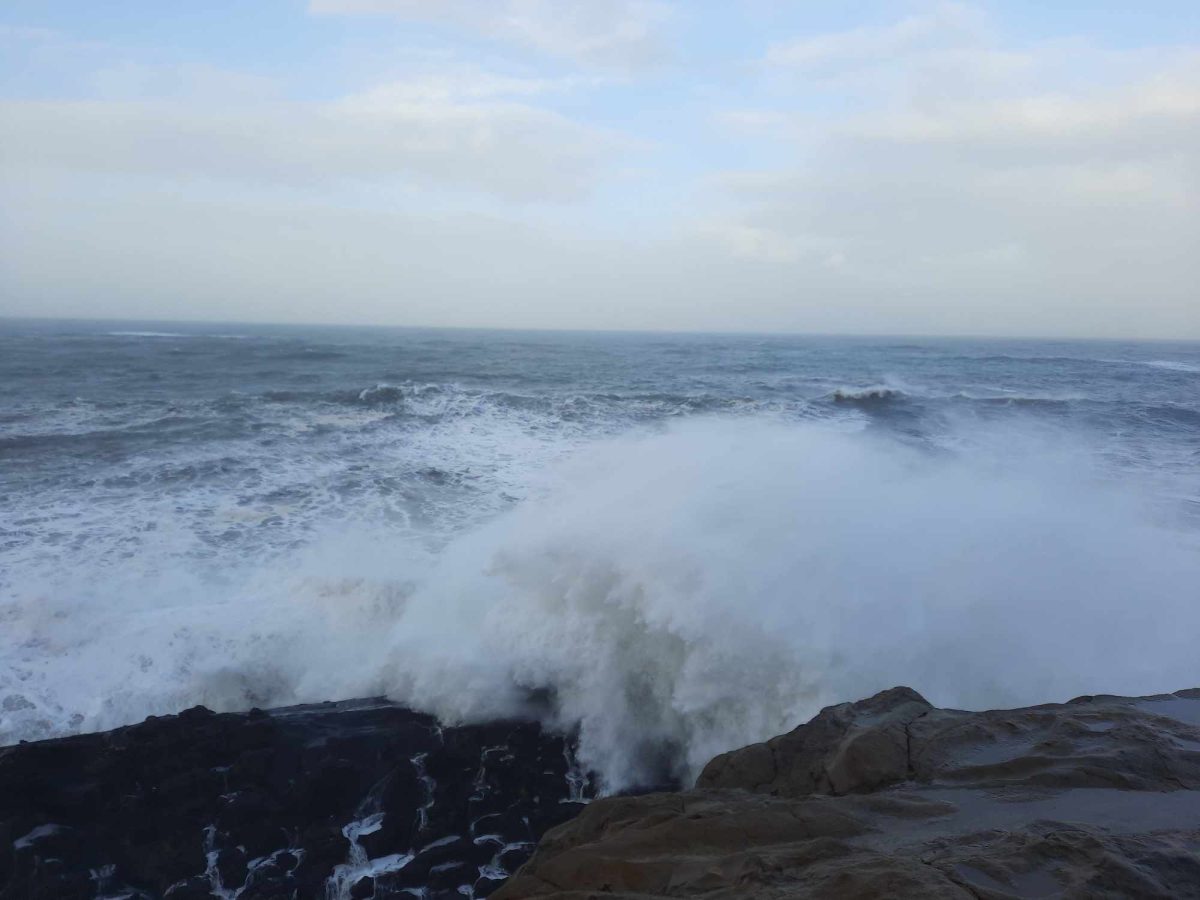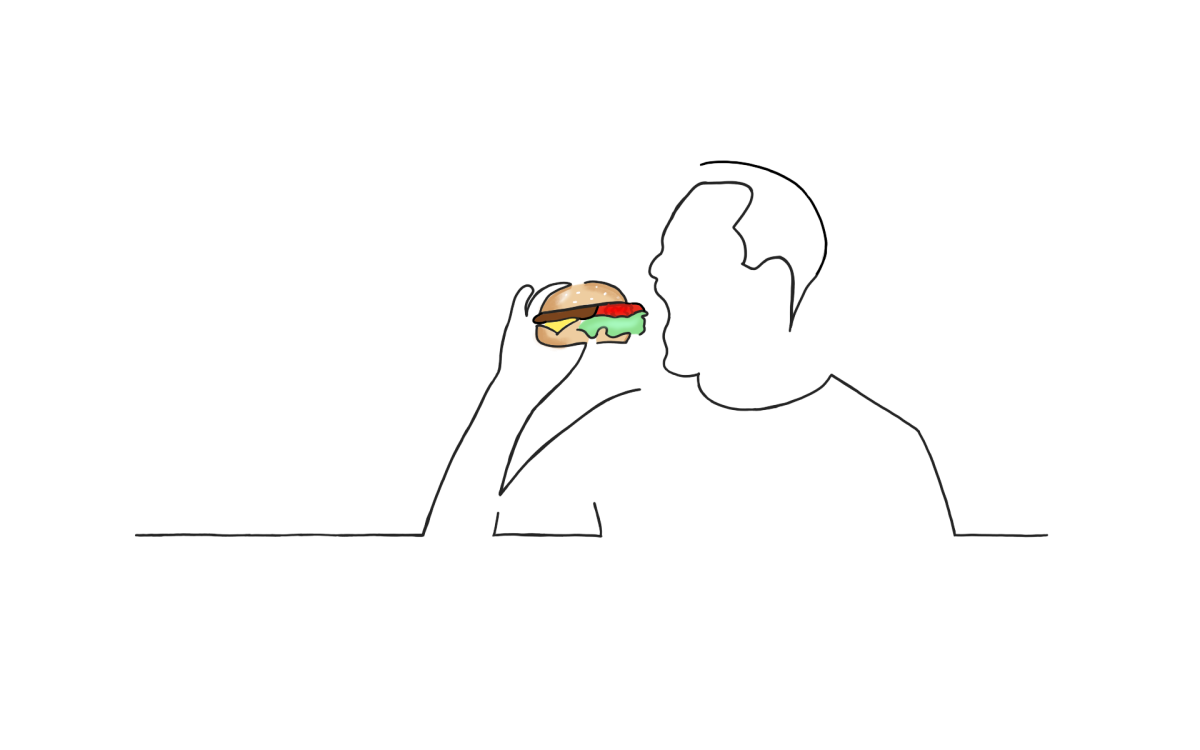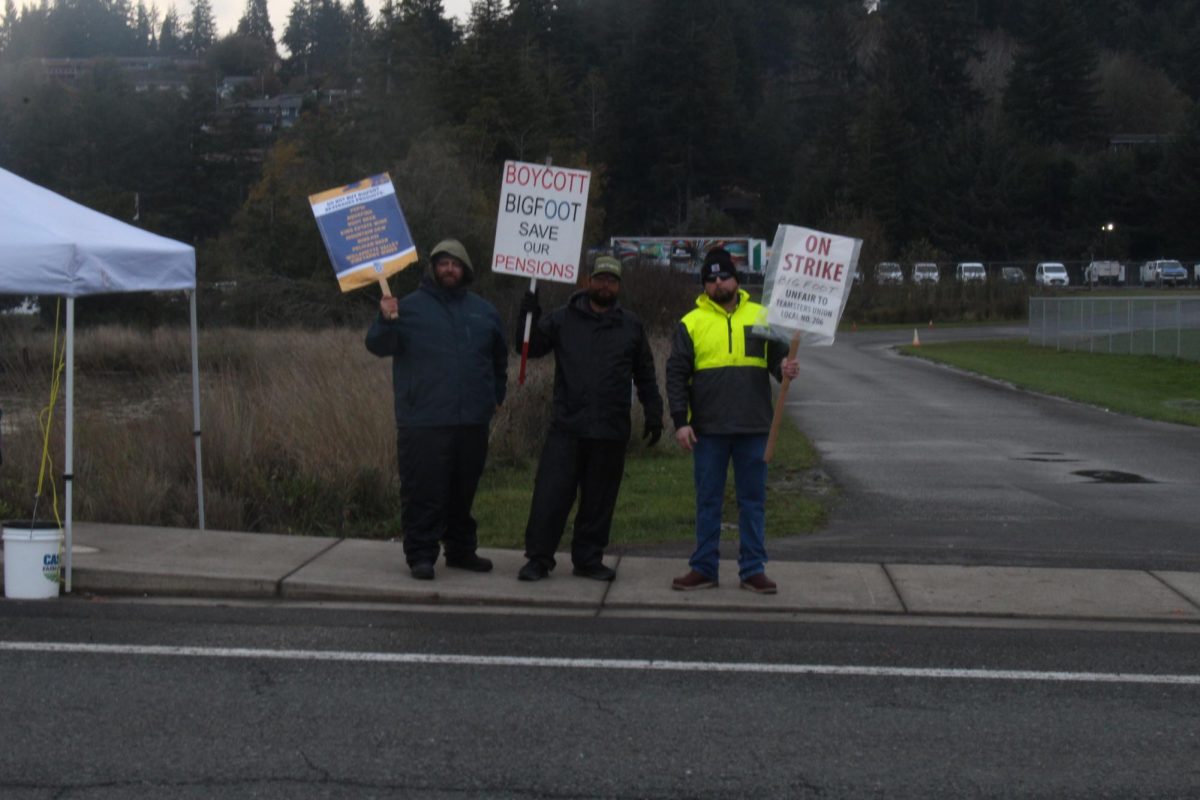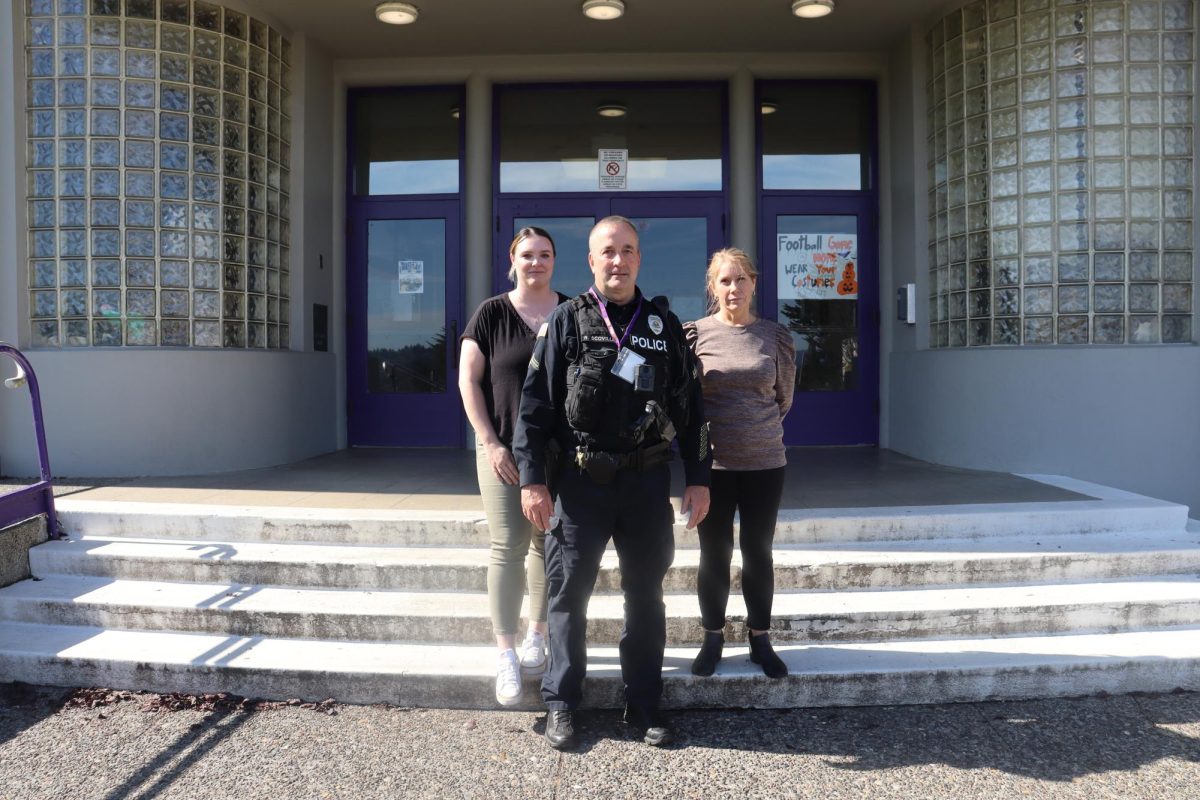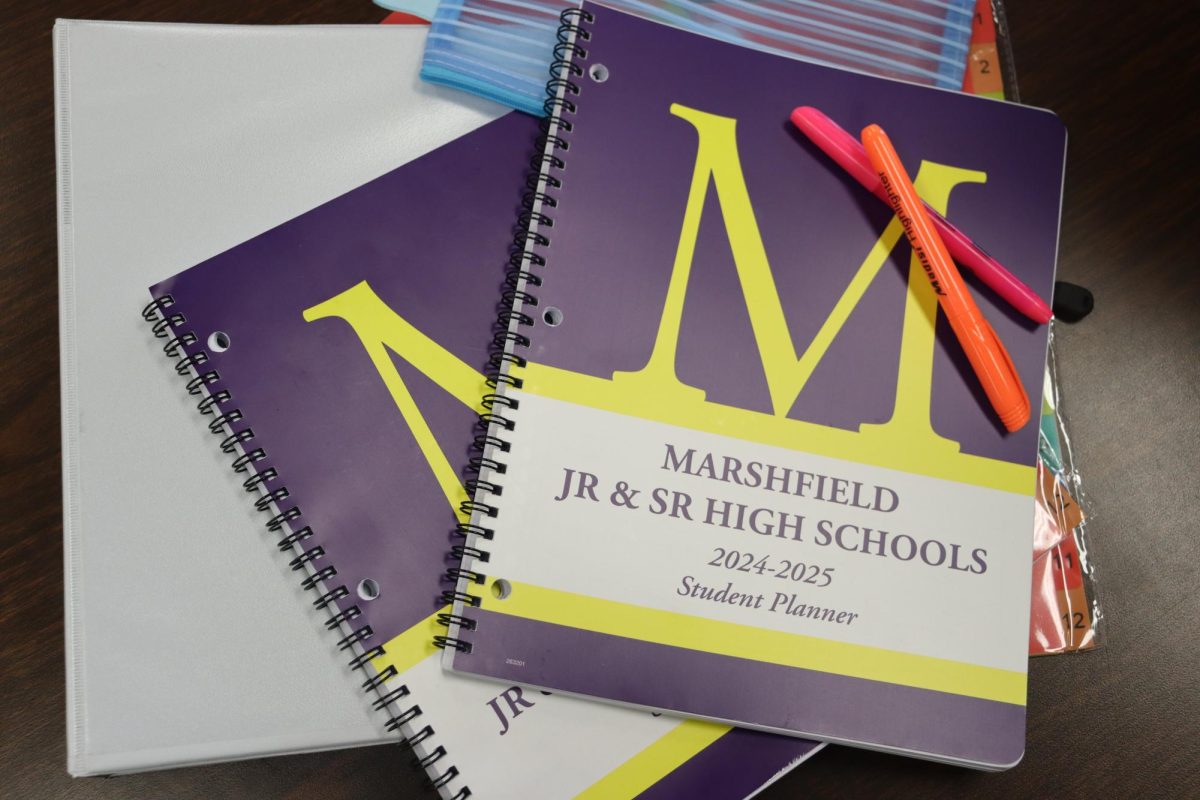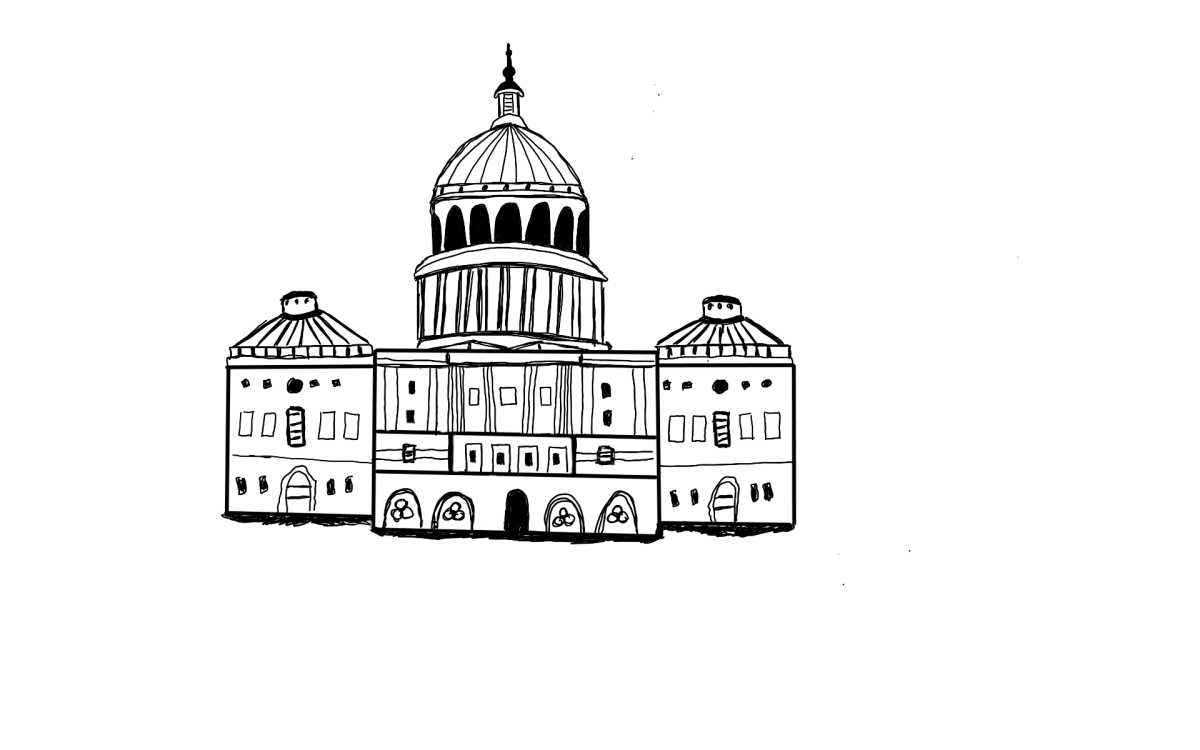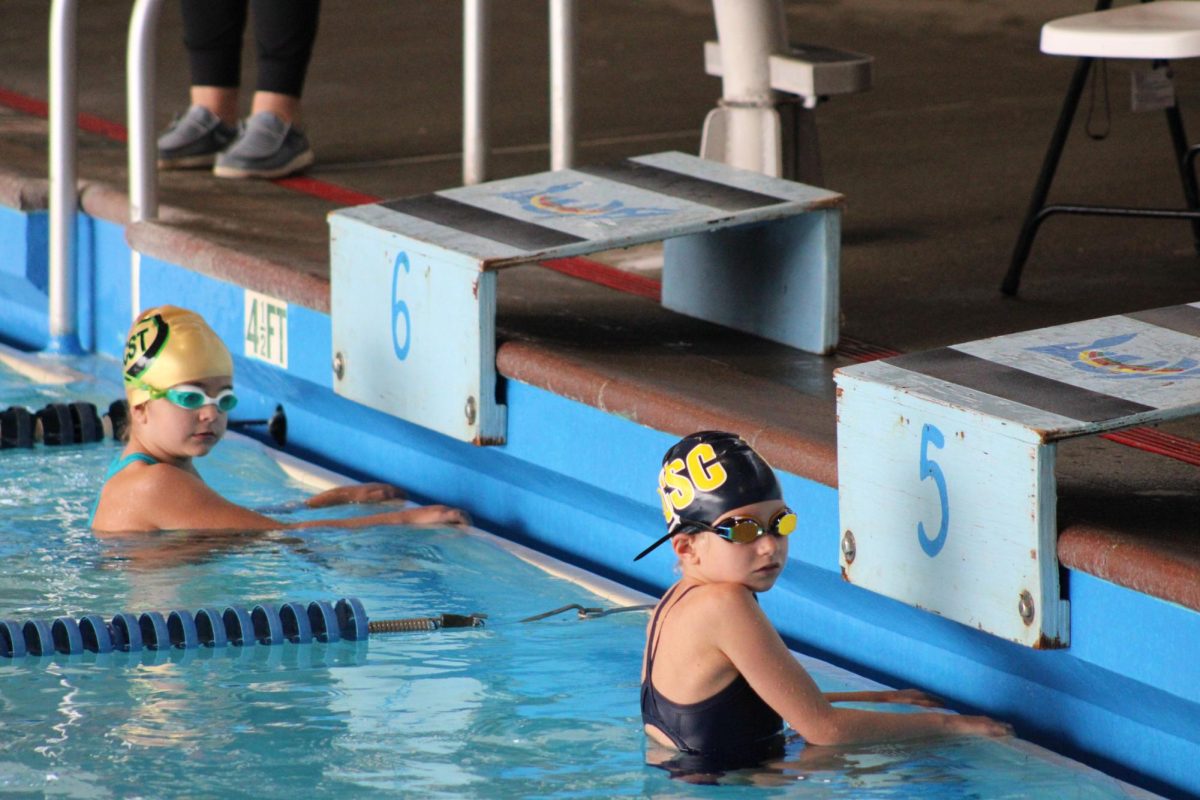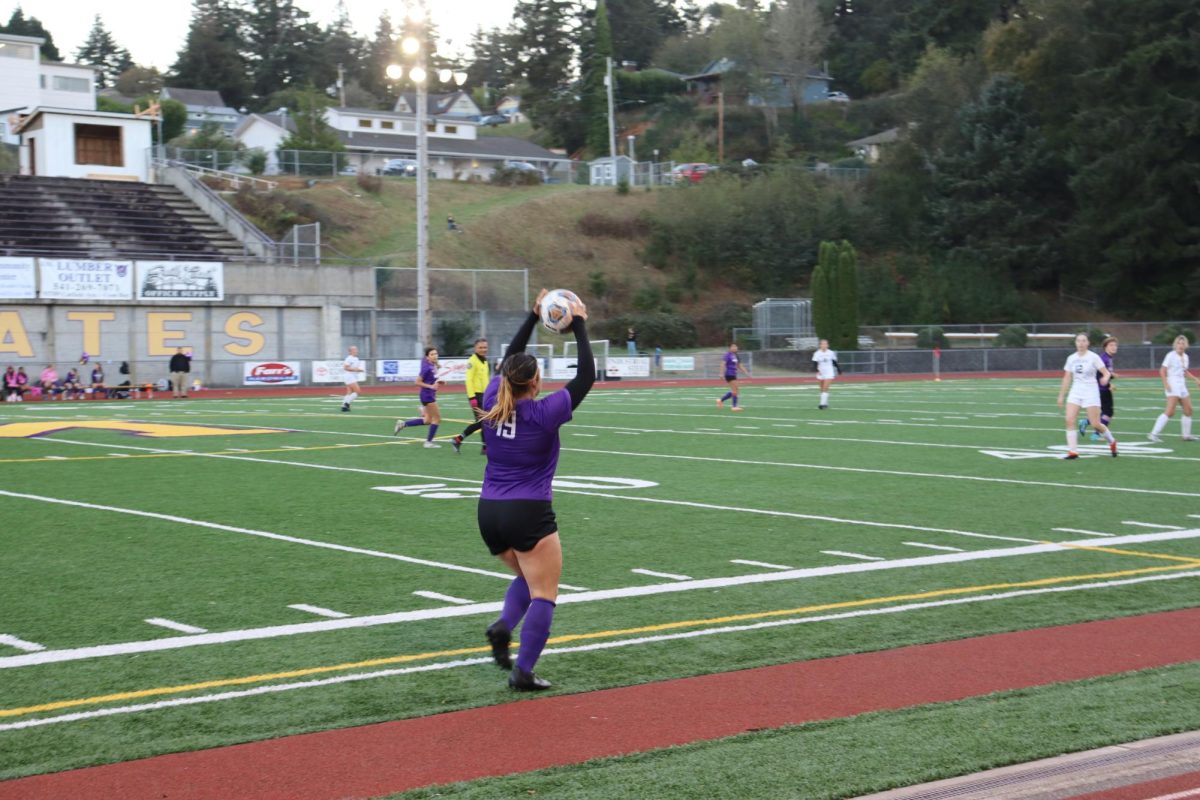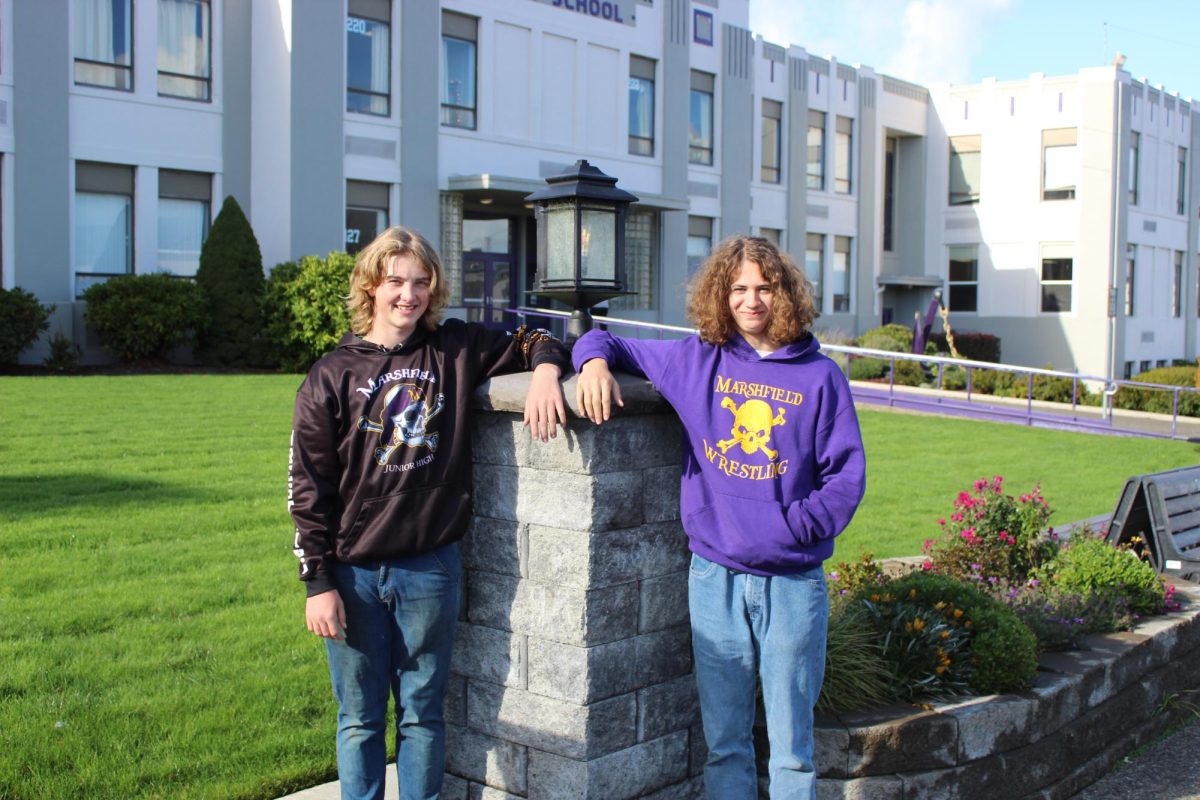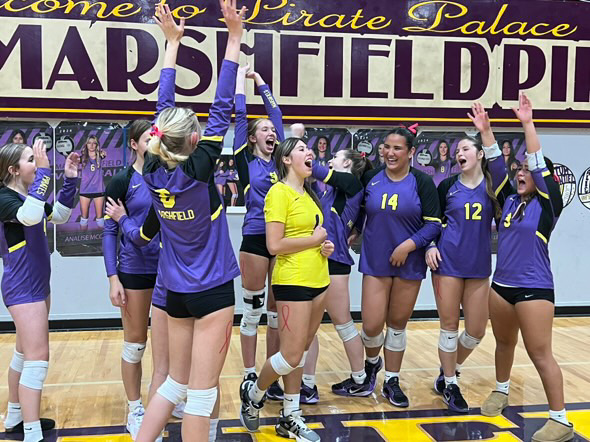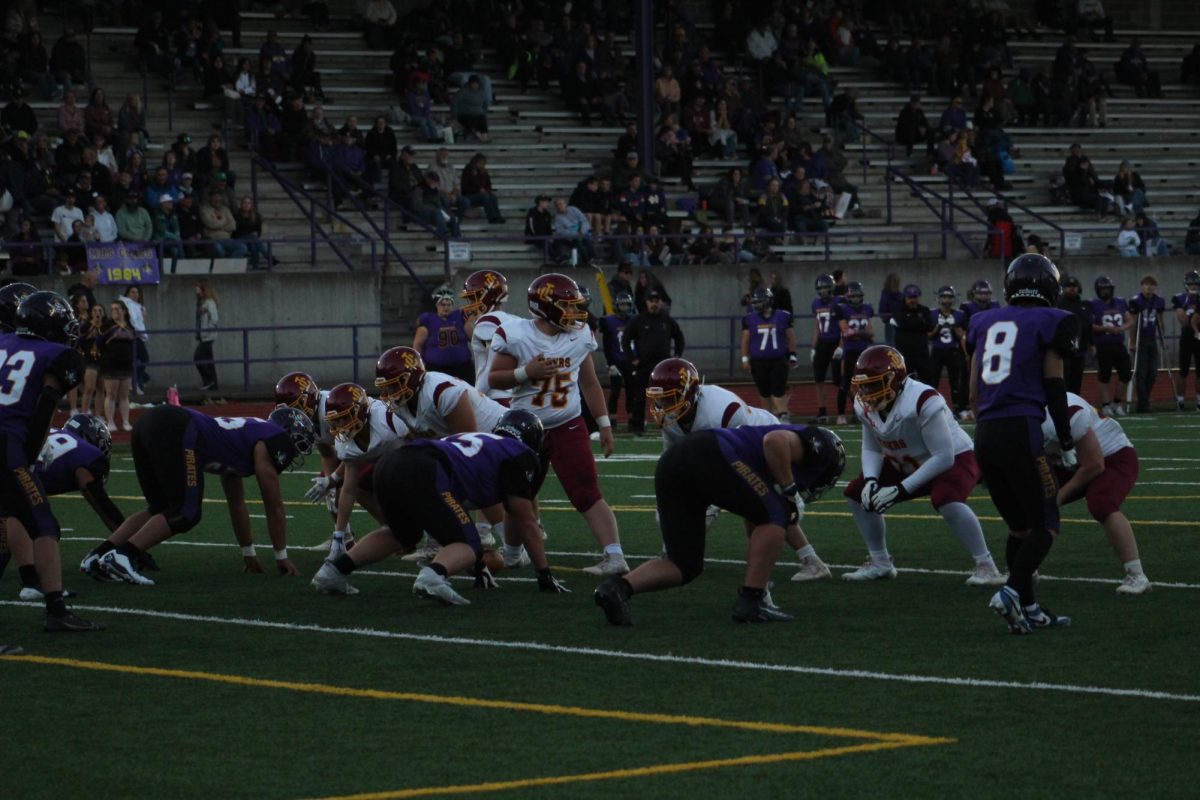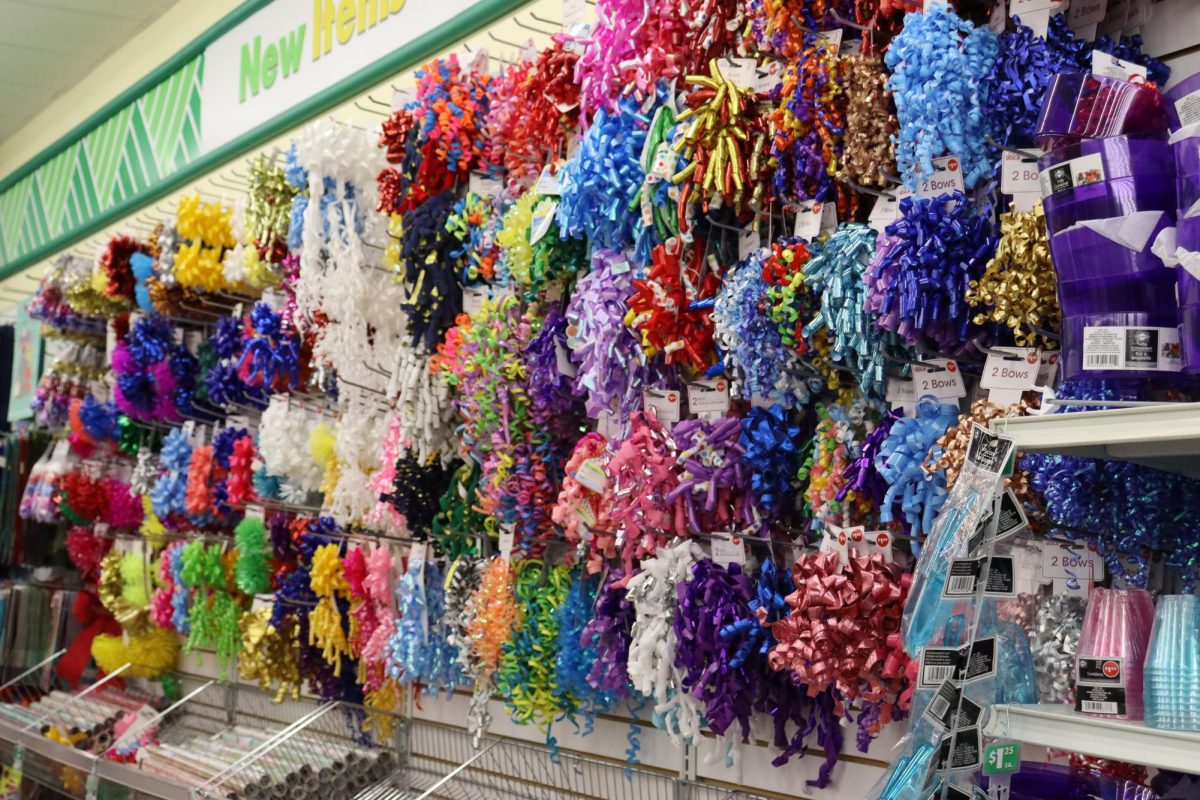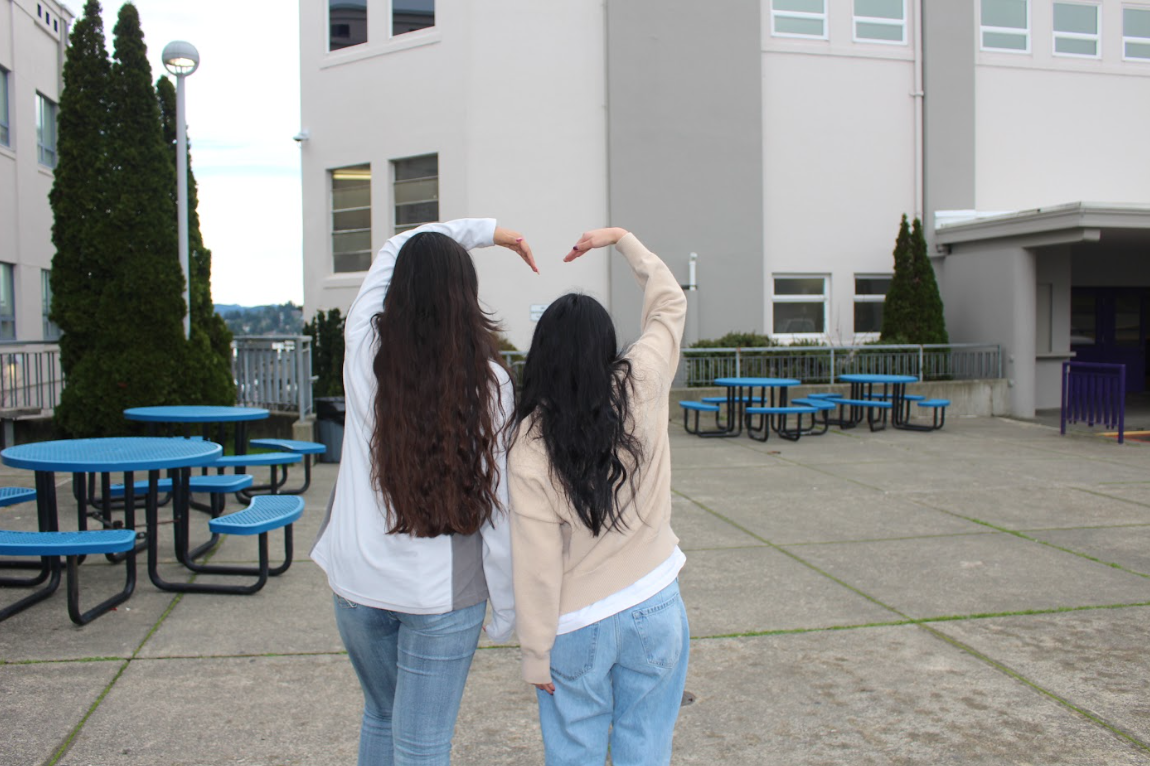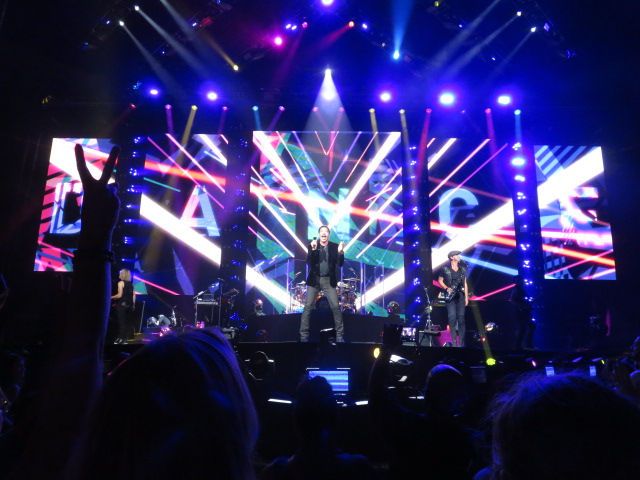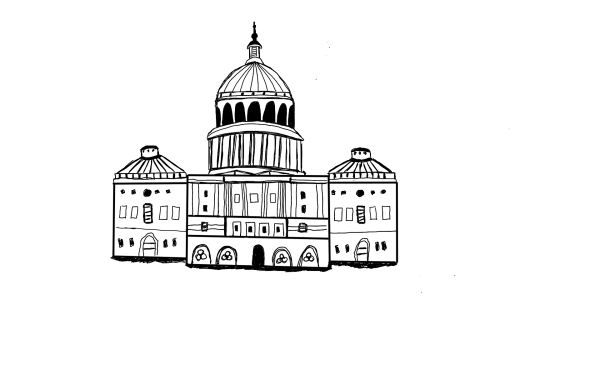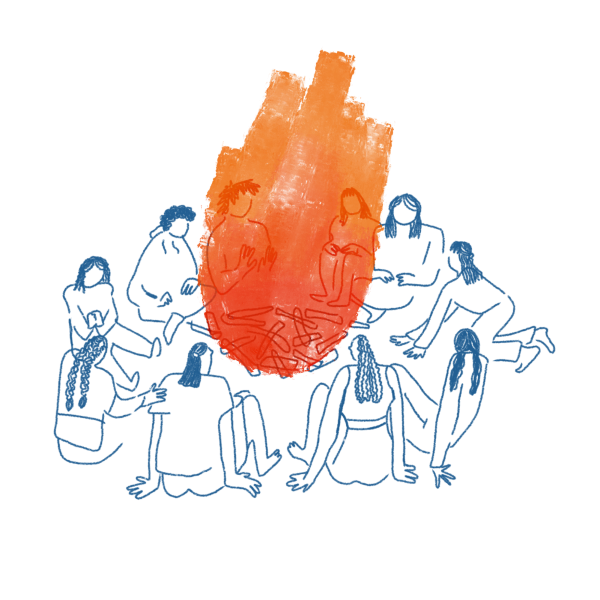Censored
Censorship has been seen in both national and local scales, many times seeing mixed results. On one hand, it is preferred that materials deemed obscene or inappropriate are kept away from children and young people. Or that misinformation is regulated within the media. On the other hand, governments like Florida are able to strip away the freedom of speech America guarantees and produce a law that prohibits the discussion of sexual orientation among certain grade levels. It becomes difficult to discern at what point censorship becomes too much control.
At Marshfield High School, the extremity of censorship falls on a class-to-class basis. Within the library, censorship is well balanced. Instead of banning books, they participate in an annual banned book week, in which texts that were once banned, or still are at other schools, are singled out and presented to students. MHS librarians encourage students to use these books as learning tools.
Censorship is proven useful when the material is obscene or inappropriate.
Controlling what children and young people are exposed to can be helpful in order to let them develop properly without causing detrimental harm. Censorship also provides the sometimes necessary regulation of misinformation we see in news and other media.
On a national level, we see that the United States protects the use of free speech via the first amendment of the constitution. However, we still see censorship on a governmental basis such as Florida’s “Don’t Say Gay” law signed into office by Governor Ron Desantis in early 2022. This law created a ban on the discussion of sexual orientation for certain grade levels, preventing discussion on important topics.
Censorship refers to the suppression of words, images, or ideas that are perceived as subversive of the common good, usually pinpointing the media. While there is only some direct censorship at MHS, there are many restrictions placed on students to supposedly help the emotional and physical safety of students as they pursue their education. Restrictions can be used in favorable ways, while other ways proving not to be as effective. While restrictions in an educational environment are seen on a national and local level, there is a fine line between the need for control and so much control that creativity is stifled.
Actions deemed inappropriate here, however, are quickly met with consequences. Just last year, the Associated Student Body organized an event in which they wrote white lies on their T-Shirts. Much of the staff found certain phrases quite offensive, and the president of this group was forced to make a public apology. This is largely due to the strong legacy Marshfield intends to uphold. Regardless, many students felt that their jokes had been judged too harshly.
Students at MHS have also been met with restrictions when it comes to things such as dressing for Halloween, appropriate attire for graduation, and even senior pranks. When senior pranks go a bit too far, seniors are required to report to the school before 5 a.m. the following morning to help in cleanup, or relinquish their right to walk in the graduation ceremony.
It is evident that in any way it’s used, there is a balance to be found within censorship, suppression, and the desire to maintain control. Marshfield puts pressure on its legacy, and when students’ actions don’t reflect that, actions start to get restricted. Censorship can be a useful tool when used correctly but over-censoring things can make matters worse, there is a balance to find.
Your donation will support the student journalists of Marshfield High School. Your contribution will allow us to purchase equipment and cover our annual website hosting costs.

